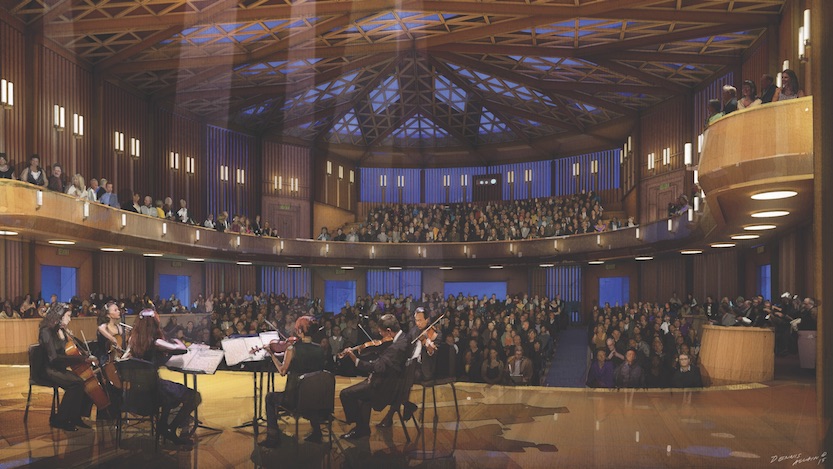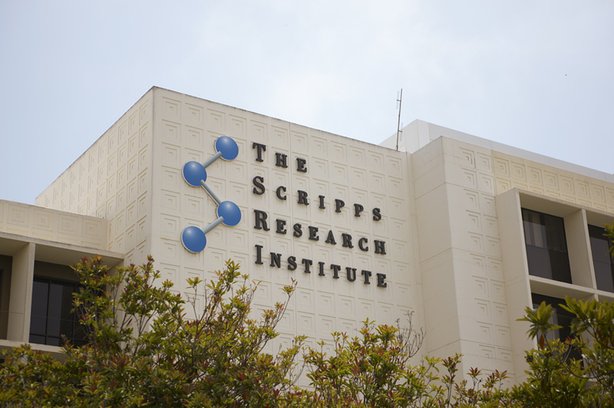Daily Business Report-Jan. 30, 2017
Concert Hall rendering. (Images courtesy of Epstein Joslin Architects)
La Jolla Music Society to Mark Groundbreaking
For the Conrad Prebys Performing Arts Center
La Jolla Music Society begins a new chapter in its more than 45-year history as a bastion of San Diego’s arts community with the groundbreaking Wednesday of its $76 million performing arts center, The Conrad Prebys Performing Arts Center.
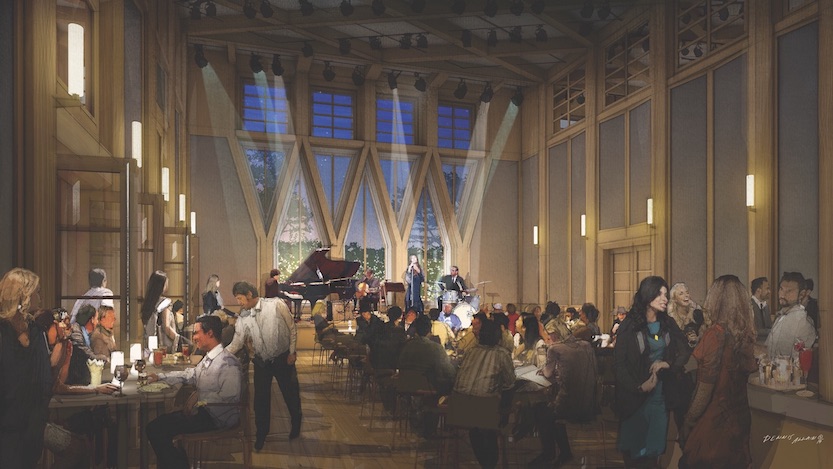
Named after noted philanthropist and successful business executive Conrad Prebys, The Conrad will honor his legacy of support and love for the performing arts.
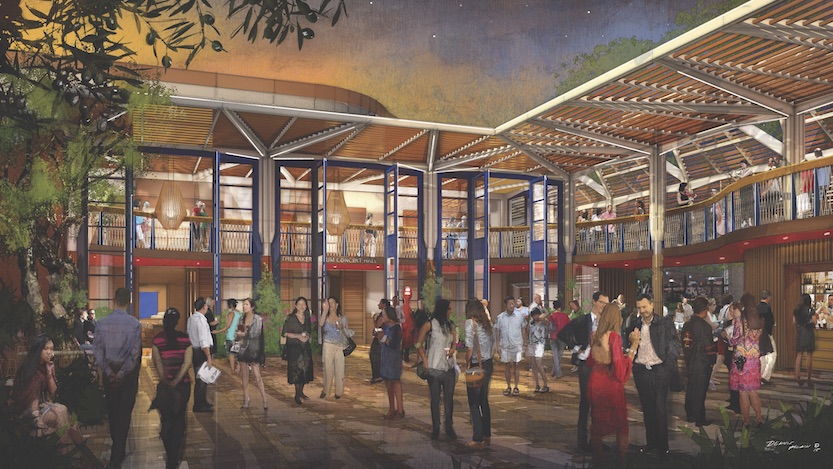
The new performing arts center at 7600 Fay Ave.will feature a 500-seat concert hall and 140-seat flexible performance space.
La Jolla Music Society officials said the center will put San Diego on the national and international map as the home of one of the most architecturally exquisite and acoustically perfect performing arts centers to be built in recent years.
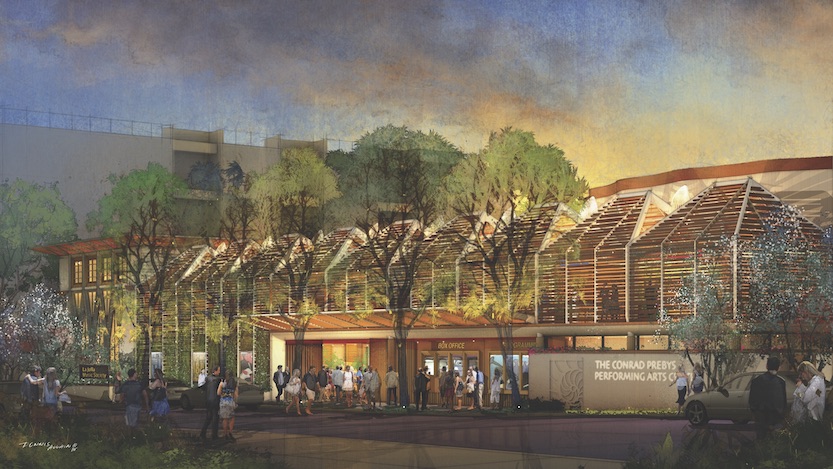
________________________

City Historical Resources Board Votes
To Oppose California Theatre Demolition
Developer wants to build 40-story residential tower on the site
The city of San Diego’s Historical Resources Board voted Friday to oppose a staff recommendation to allow the demolition of the California Theatre as proposed by Sloan Capital Partners, which wants to build a 40-story residential tower and retail space on Downtown’s C Street site.

Demolition of the theater, which has been unused for more than 25 years, has been opposed by the Save Our Heritage Organisation (SOHO), which considers it a historical treasure that should be rehabilitated.
Sloan Capital Partner’s proposal is supported by the Downtown San Diego Partnership, believing it will add to the rejuvenation of the C Street Corridor. The Civic San Diego Board of Directors has recommended approval and has reviewed a rendering of the project by Martinez + Cutri Corporation.
The developer is calling the project “The Overture,” claiming “it will turn an unused and unsafe space into a new community gathering space aimed at encouraging and enabling public interaction in a thriving, dynamic urban environment.” The Overture website claims the project “will be the epicenter of the revitalization of C Street.”
At the Historical Resources Board meeting, developer Peter Janopaul explained his long-time interest in the theater and said he has made multiple offers to acquire the theater as part of a rehabilitation project. According to SOHO there have been other offers from preservation developers on the site.
The Sloan Capital Partners’ proposal will next be considered by the city Planning Commission in February followed by the City Council, likely in March. California Theatre building circa 1950s.
________________________

NASSCO Begins Construction
On Mobile Sea Base Ship
General Dynamics NASSCO has kicked off construction of a follow-on mobile sea base for the U.S. Navy under a previously awarded contract.
The company said the fifth ship in the military branch’s Expeditionary Transfer Dock/Expeditionary Sea Base program will be built with a 52,000-square-foot flight deck, accommodation areas for up to 250 personnel, repair, mission planning, fuel and equipment storage rooms.
ESB 5 will support sea-to-shore missions as well as serve as a “pier at sea” for MH-53, MH-60 and MV-22 aircraft platforms.
ESD and ESB ships, originally called Mobile Landing Platforms and MLP Afloat Forward Staging Bases, are designed to function as mobile sea bases for operations such as troop deployment and and equipment sustainment or distribution.
NASSCO has already delivered USNS Montford Point, USNS John Glenn and USNS Lewis B. Puller to the Navy and began work on USNS Hershel “Woody” Williams in October last year.
________________________

Mesa West Capital Funds $28M Loan
For Scripps Summit Court Acquisition
Mesa West Capital has provided Newport National Corporation with a $28 million first mortgage loan for the acquisition, renovation and stabilization of Scripps Summit Court.
Acquired from owner-user HD Supply Facilities Maintenance, which recently relocated to Atlanta, the asset comprises a vacant 146,549-square-foot, four-story commercial office building on a 21-acre lot in the Scripps Ranch submarket.
Built in 2000 as a build-to-suit for HD Supply, the building features a cafeteria, fitness center, locker room with showers, outdoor patios, basketball and sand volleyball courts. The loan proceeds will be used to complete a renovation that will include a new exterior entrance, upgrades to the lobby and common areas as well as the addition of a new bistro/coffee bar, upgraded fitness center, and new training/events room. The loan includes a holdback to fund future tenant improvements and leasing costs.
________________________
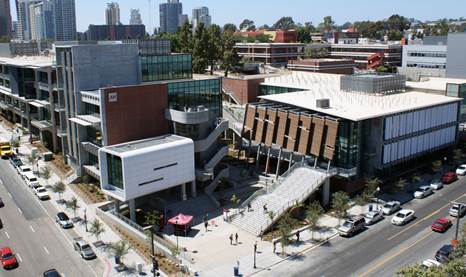
Community College District Among
Leaders for Upward Mobility of Graduates
With nearly 50,000 students resuming classes today at San Diego City, Mesa, and Miramar colleges, a new study shows the San Diego Community College District (SDCCD) is among the nation’s leaders for the upward mobility of its graduates.
Compared with other two-year colleges and college districts, the study shows the SDCCD is among the best in the country in producing students who later land in the top 20 percent of income earners. Making that even more impressive is the vast majority of students in the district come from families falling in the bottom 60 percent of wage earners.
The district’s mobility rate, at 22 percent, puts it in the top quarter of all two-year colleges and districts nationwide. The study defines a college’s mobility rate as the percentage of its students who come from a family in the bottom fifth of income distribution and end up in the top fifth of income distribution. District graduates were also among the nation’s highest for moving from the lowest income quintile to the top.
Published by the Equality of Opportunity Project in partnership with the The New York Times, the study, “Mobility Report Cards: The Role of Colleges in Intergenerational Mobility,” is considered one of the most comprehensive looks at how colleges and universities nationwide are shaping the prospects of students’ upward mobility. Results from the SDCCCD is available at the New York Times website.
________________________
TSRI Scientists Find Brain
Hormone that Triggers Fat Burning
Biologists at The Scripps Research Institute (TSRI) have identified a brain hormone that appears to trigger fat burning in the gut. Their findings in animal models could have implications for future pharmaceutical development.
“This was basic science that unlocked an interesting mystery,” said TSRI Assistant Professor Supriya Srinivasan, senior author of the new study, published in the journal Nature Communications.
________________________

General Atomics Building New Predator
Drones to Fly Non-Military Missions
San Diego-based General Atomics Aeronautical Systems Inc. is preparing to launch a new version of its Predator B drone that is equipped to handle non-military missions such as border surveillance, maritime patrol, and natural disaster assistance as well as protection of ground forces.
Called “SkyGuardian,” the new drone is the result of a five-year company effort to deliver a system that can operate under the airworthiness requirements of non-military airpace. “The aircraft leverages the legacy of the multi-mission Predator B fleet, which has amassed nearly 2 million flights hours,” the company said. “SkyGuardian can fly in excess of 35 hours with air speeds up to 210 knots, and reach altitudes of more than 14,000 meters.”
General Atomics is building three company-owned aircraft, along with two airframes designed specifically for full-scale fatigue and static testing to satisfy certification requirements. It plans to deliver the first production aircraft in 2018.
The aircraft can host a variety of sensor and communications payloads and is capable of transmitting high-resolution video to manned aircraft and ground forces, according to General Atomics. The maritime patrol variant of the system, designated “SeaGuardian,” is designed to support open ocean and littoral surface surveillance for border patrol, coast guard, and disaster relief missions.
________________________
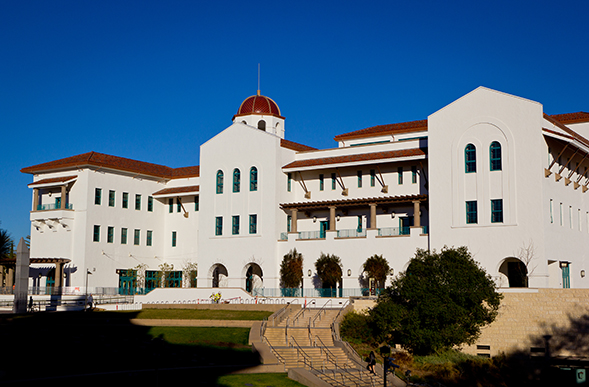
SDSU Student Union One of Most
Energy Efficient Buildings in World
San Diego State University’s Conrad Prebys Aztec Student Union has achieved LEED Double Platinum status, joining an elite group of energy-efficient buildings. The recognition is shared by fewer than two dozen facilities around the world.
The newly earned LEED Platinum certification for Existing Buildings Operations and Maintenance comes just two years after the student union earned LEED Platinum status for new construction.
LEED is a third-party certification for “green” buildings and stands for Leadership in Energy and Environmental Design. In order to qualify for certification from the U.S. Green Building Council, each project must follow strict LEED guidelines.
The U.S. Green Building Council lauded SDSU for a long list of items including the university’s commitment to installing energy-efficient devices and materials, using water-saving equipment and providing an overall sustainable site.
The student union, which was completed in 2014, features a “green roof” that helps reflect sunlight and heat away from the building; high-efficiency LED bulbs, which contribute to saving nearly 40,000 kWh per year; solar panels, which generate nearly 16 percent of the energy the student union uses; and low-flow faucets and toilets that use 40 percent less water than what is outlined in the LEED baseline.

